Garrett Epps Quotes & Sayings
Enjoy the top 11 famous quotes, sayings and quotations by Garrett Epps.
Famous Quotes By Garrett Epps

Though Article II requires "natural born" citizenship, the Constitution does not explain what the phrase means. There was no constitutional definition of American citizenship until 1868, when the Fourteenth Amendment was adopted. Nor was there any existing body of American immigration law to explain it. — Garrett Epps

The new Constitution, however, is brought to us by a Muse, ordained by the authority of the People, and established at the center of our common life. We can read these words as creating a national religion, one at which we still worship. — Garrett Epps
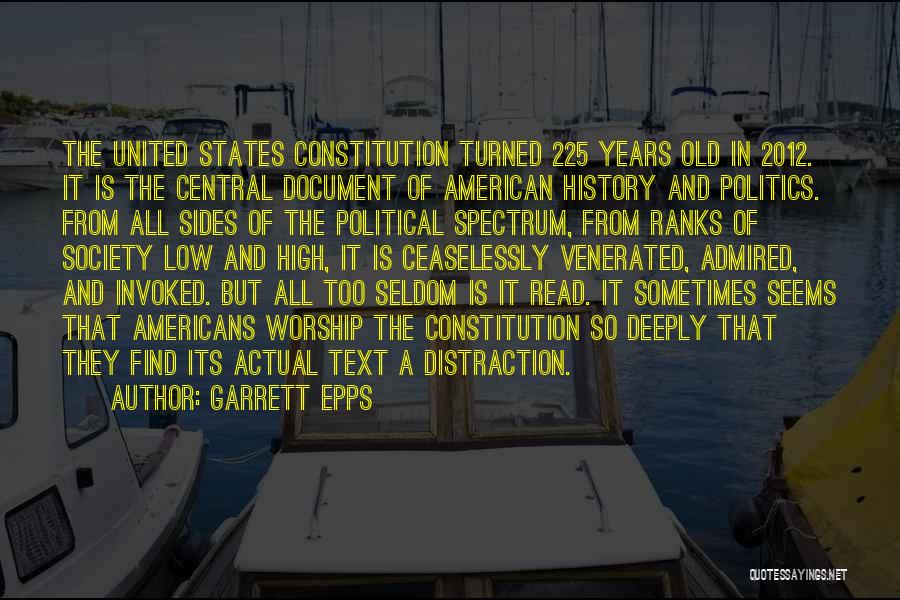
The United States Constitution turned 225 years old in 2012. It is the central document of American history and politics. From all sides of the political spectrum, from ranks of society low and high, it is ceaselessly venerated, admired, and invoked. But all too seldom is it read. It sometimes seems that Americans worship the Constitution so deeply that they find its actual text a distraction. — Garrett Epps

the Gilded Age Senate was in fact more subservient to established interests than the current one. It was during this period that the Senate came to be called "the Millionaire's Club," because industrial and banking magnates, having amassed huge fortunes, often bought themselves Senate seats so they could protect their wealth on the spot. — Garrett Epps
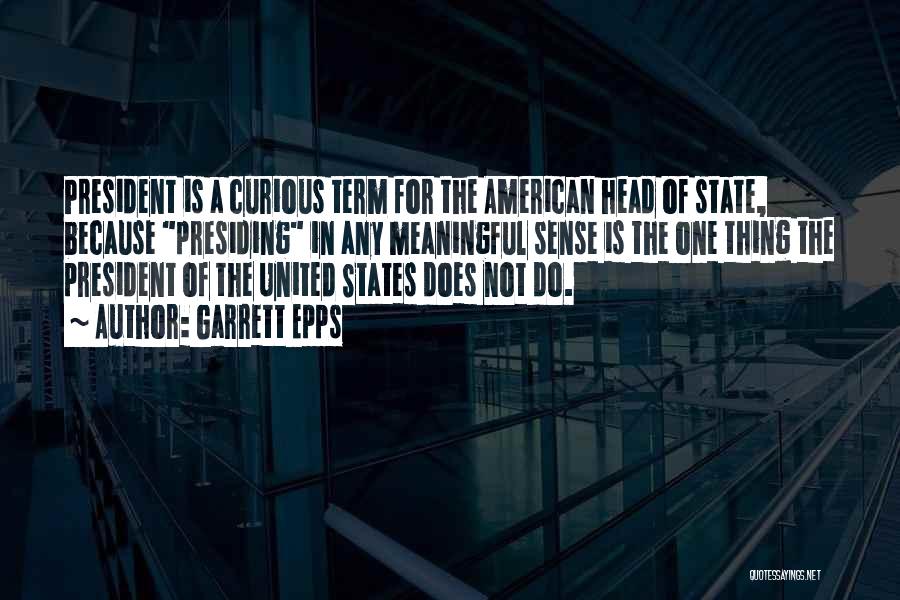
President is a curious term for the American head of state, because "presiding" in any meaningful sense is the one thing the president of the United States does not do. — Garrett Epps

The new Constitution will promote the "general" welfare, not welfare varying by condition or by place of residence. It will secure our liberties - against whom? There's an ambiguity here; liberty could be secured against foreign enemies and domestic subversives, or against the new government itself. The latter interpretation is soothing to American ears; but in this context, it seems far-fetched. The clause appears in a list of things government is to do, not things it is not to do; a list of powers, not of prohibitions. The new government, it would appear, is not the enemy of liberty but its chief agent and protector. The purpose then, in its most plausible reading, is to create a strong, active, national government, one whose benefits will flow directly to the people who create it. — Garrett Epps

Historical tempers have cooled only slightly after the impeachment of Bill Clinton for lying under oath about a sexual relationship. Many Americans still believe his actions were a threat to the very rule of law; others insist that the "offense" was more low farce than high crime, and that the zeal of Clinton's foes was partisan hypocrisy rather than constitutional passion. — Garrett Epps
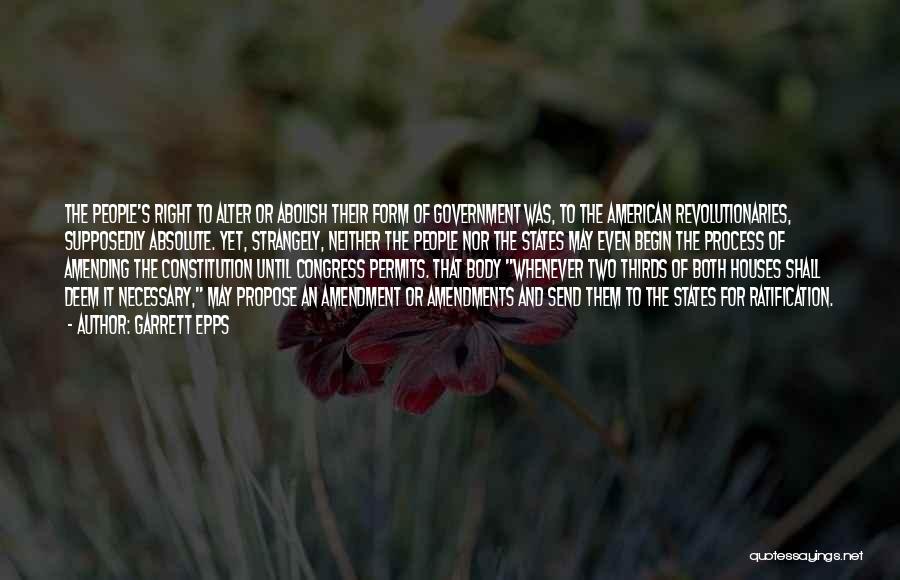
The people's right to alter or abolish their form of government was, to the American revolutionaries, supposedly absolute. Yet, strangely, neither the people nor the states may even begin the process of amending the Constitution until Congress permits. That body "whenever two thirds of both Houses shall deem it necessary," may propose an amendment or amendments and send them to the states for ratification. — Garrett Epps
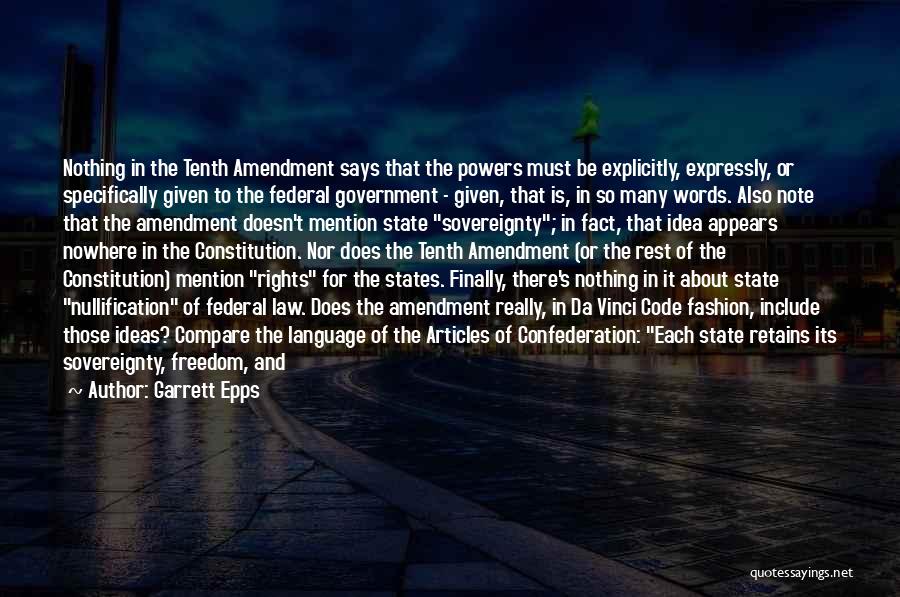
Nothing in the Tenth Amendment says that the powers must be explicitly, expressly, or specifically given to the federal government - given, that is, in so many words. Also note that the amendment doesn't mention state "sovereignty"; in fact, that idea appears nowhere in the Constitution. Nor does the Tenth Amendment (or the rest of the Constitution) mention "rights" for the states. Finally, there's nothing in it about state "nullification" of federal law. Does the amendment really, in Da Vinci Code fashion, include those ideas? Compare the language of the Articles of Confederation: "Each state retains its sovereignty, freedom, and independence, and every power, jurisdiction, and right, which is not by this confederation expressly delegated to the United States, in Congress assembled. — Garrett Epps

The Gilded Age was much like today; the rich went on a rampage, gutting, by fair means or foul, any institution or principle that protected ordinary people against organized greed. At the end of it, the majority of the American people insisted, against enormous opposition, that the government's powers, structure, and values be modernized to reflect the interests of ordinary people rather than solely those of the wealthy. — Garrett Epps
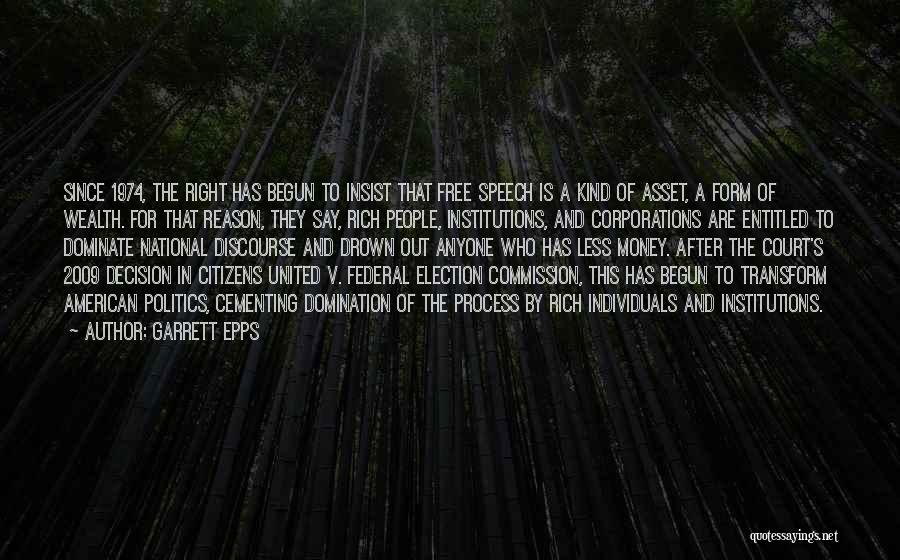
Since 1974, the Right has begun to insist that free speech is a kind of asset, a form of wealth. For that reason, they say, rich people, institutions, and corporations are entitled to dominate national discourse and drown out anyone who has less money. After the Court's 2009 decision in Citizens United v. Federal Election Commission, this has begun to transform American politics, cementing domination of the process by rich individuals and institutions. — Garrett Epps





